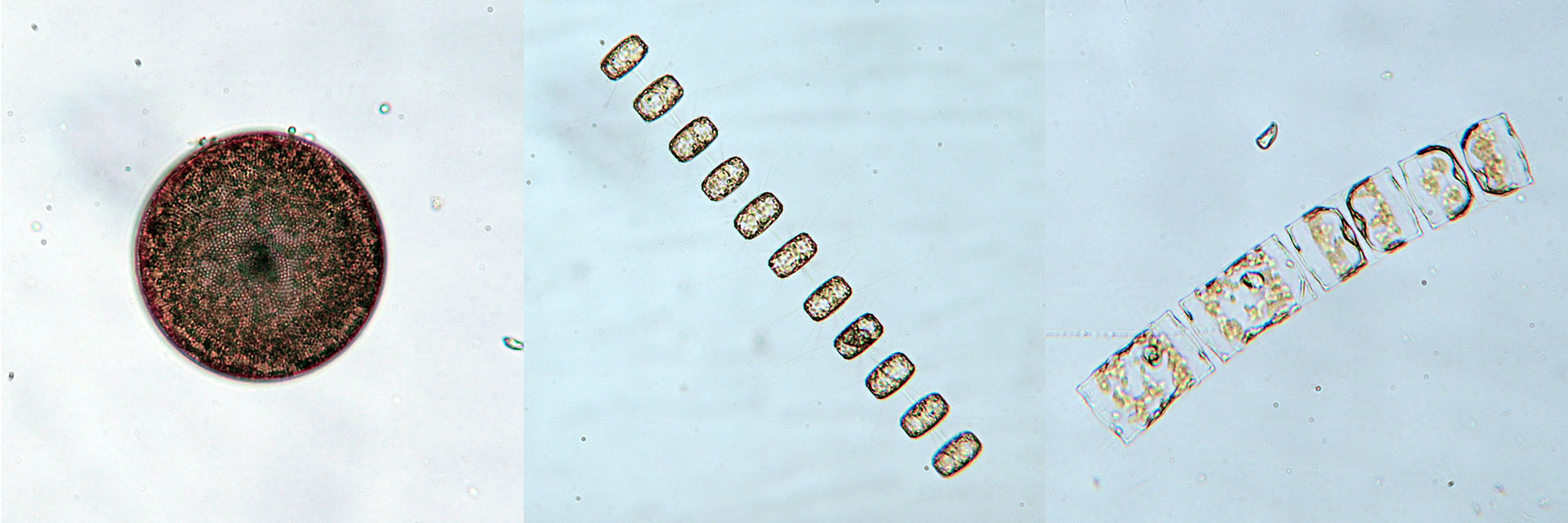11th April 2023
A new article has been published on the ESA website which explains the ocean carbon cycle and the BICEP project. It features a useful animation about Phytoplankton and the ocean biological carbon pump as well as a video about Ocean colour - where BICEP PI Dr Shubha Sathyendranath talks about the importance of Earth Observation data in understanding the ocean.
Read the article on the ESA.int website >
BICEP at the ESA Living Planet Symposium 2022
Venue: Bonn, Germany
Dates: 23 - 27 May, 2022
https://lps22.esa.int/
Several members of the BICEP team will be presenting at the ESA Living Planet Symposium on Wednesday 25 May 2022. This includes a session on "Ocean Carbon from Space" chaired by BICEP team members Dr. Shubha Sathyendranath (Plymouth Marine Laboratory), Dr. Jamie Shutler (University of Exeter) and Dr. Marie-Hélène Rio (ESA - ESRIN). Watch out for us at the sessions below:
Wednesday 25 May
| Time |
Session |
Title |
Speaker |
| 14:15-14:30 |
A8.12.1 Synergies between Earth Observation and BGC-Argo autonomous profilers |
Partitioning a vertical profile of phytoplankton biomass into contributions from two communities: A conceptual approach |
Dr. Robert J. W. Brewin | College of Life and Envronmental Sciences, Penryn campus, University of Exeter | United Kingdom |
| 15:40-15:55 |
A8.03.1 Ocean Carbon From Space |
Biological pools and fluxes of carbon in the ocean |
Dr. Shubha Sathyendranath | Plymouth Marine Laboratory, Plymouth, United Kingdom | United Kingdom |
| 17:20-19:00 |
Poster Session Day 3 |
Primary Production, an Index of Climate Change in the Ocean: Satellite-Based Estimates over Two Decades |
Dr. Gemma Kulk | Plymouth Marine Laboratory | United Kingdom |
| 17:20-19:00 |
Poster Session Day 3 |
Ocean colour estimates of global particulate organic carbon in the mixed layer |
Christina Kong | Plymouth Marine Laboratory | United Kingdom |
Ocean Carbon From Space Workshop - Now open for registration
Venue: Online
Dates: 14 - 18 February, 2022
https://oceancarbonfromspace2022.esa.int/
ESA, together with Plymouth Marine Laboratory and the support from NASA, is organising the Ocean Carbon From Space Workshop, to be held virtually from 14 to 18 February 2022. This workshop is being organised as the second workshop in the CLEO (Colour and Light in the ocean from Earth Observations) Series and is a contribution to the Committee on Earth Observation Satellites (CEOS) Work Plan on the Aquatic Carbon Application area, as endorsed by the CEOS Ocean Colour Radiometry Virtual Constellation (OCR-VC) founded within the International Ocean Colour Coordinating Group (IOCCG). The main objectives of the workshop are to bring together remote sensing scientists, field scientists and modellers around the common topic of ocean carbon, its pools and fluxes, its variability in space and time and the understanding of its processes and interactions with the earth system. The aim is to articulate a collective view of the current status, identify gaps in knowledge and formulate the scientific roadmap for the next decade, with an emphasis on evaluating where Earth Observations (EO) may contribute.
The workshop is being organised as a series of sessions targeting specific themes. Each session will consist of invited talks, contributed oral and poster presentations, and a group discussion. The workshop will conclude with a synthesis and recommendation session.
We invite submission of abstracts contributing to the following themes:
Pools of Carbon in the Ocean
1. Particulate Organic Carbon
2. Phytoplankton Carbon
3. Particulate Inorganic Carbon
4. Dissolved Organic Carbon
5. Dissolved Inorganic Carbon
Main processes
6. Marine Primary Production
7. Export Production
8. Underwater Light Field
9. Air-Sea Exchanges
10. Land-Sea Exchanges
Crosscutting themes
11. Uncertainty Estimates
12. Freshwater Carbon
13. Blue Carbon
14. Extreme Events, Tipping Points and Impacts on Carbon
15. Climate Variability and Change
16. Ocean Carbon Budget: How Close to Closure?
For more information and to register visit: https://oceancarbonfromspace2022.esa.int/
Royal Society’s Summer Science 2021: How can we track and trace carbon from space?
Published: 7th July 2021
Scientists from the BICEP project will be showing how we can use satellites to study the global carbon cycle during the Royal Society’s Summer Science 2021, which will be going totally digital from 8th to 11th July.
Dr Gemma Kulk and Dr Shubha Sathyendranath will be showcasing their research on phytoplankton – part of the European Space Agency’s ‘Biological Pump and Carbon Exchange Processes (BICEP) project’.

Image: Diatoms from the Antarctic
Phytoplankton play an important role by cycling a huge amount of carbon through the marine ecosystem. As primary producers, they use photosynthesis to convert inorganic carbon dioxide into organic particles that serve as food for all marine life. Collectively producing about 50 gigatons of carbon every year, these tiny organisms are just as important to the global carbon cycle as terrestrial plants.
In the online exhibit, visitors can explore the ways that such small organisms can play such a huge part in the global carbon cycle, finding out how we can observe phytoplankton from space and using interactive maps to visualise changes in phytoplankton biomass and carbon uptake over the last two decades.
Find the free online exhibit here: https://royalsociety.org/summer-science/summer-science-2021/
Direct link to the Carbon from space exhibit: https://royalsociety.org/summer-science/summer-science-2021/view-from-above/summer-space-carbon
Join Dr Gemma Kulk (PML), Professor Paul Palmer (University of Edinburgh) and Professor Mat Disney (University College London) on Friday 9 July at 12:30 for a lightning lecture and live Q&A session, ‘Stories from the frontier of Earth observation’ which will be livestreamed (and available afterwards) on the Royal Society YouTube channel.
Our breathing Earth video
The video below gives a short introduction to the Earth's global carbon cycle.